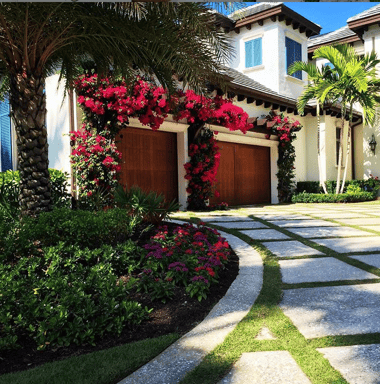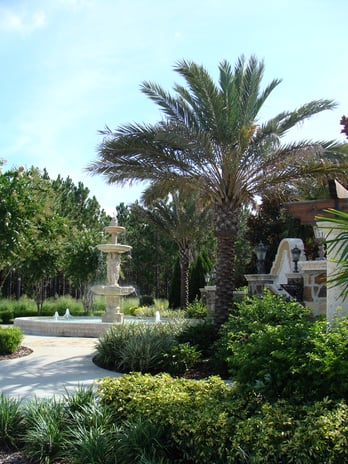
Home / Here on Earth / Spring is in Full Bloom: Florida Spring Gardening
Since the spring season has arrived, it is perfect for gardening in Florida. Keep an eye on the UF/IFAS suggested planting dates to get a head start for spring gardening. Proper planning and execution of what to plant, when to plant, maintain the landscape, etc., are crucial for getting a good yield.
Points to Consider Before Gardening
Having proper knowledge about the plants, soil, landscape, and climate of the area, among other factors, is exceptionally vital in gardening for getting the desired output. The following are the key points that one should consider or keep in mind before getting their hands dirty.

- Get a Soil Test Done by Professionals: Getting the help of professionals is essential for getting a fair idea about the condition and type of soil that your property is built around. The pH of the soil gives accurate data about the acidity and alkalinity of the ground. Most plants and vegetables flourish in soils with pH between 5.8 to 6.3. If the soil test suggests that the soil's pH level in your property is other than the desired values, then site amendment to adjust the pH level is needed. The Down To Earth Landscape & Irrigation is a well-established organization that helps experienced and budding landscapers get the perfect soil texture, quality, pH, and nutrients to have healthy vegetation.
- Choose the Correct Location- Since sunlight is essential for plants and vegetables to grow, choosing the right place for gardening also plays an important role. The most suitable spot for sowing the seeds on your property is where that receives an adequate amount of sunlight needed for each species of plant. The site should also have a good irrigation and drainage system to support healthy and firm roots.
- Formulate a Plan- Create a plan including the necessary tools and desired plants & vegetables with proper spacing. Allow ample space for efficient movement between rows and harvesting from all sides. Make sure to incorporate different techniques, for example, trellising support structures. Keep in mind the possibility of your plants being attacked by pests and develop countermeasures.
- Stick to the Suggested Planting Dates- Most of the spring season, vegetables and plants can be outside when they are 6 to 8 weeks old once the winter has passed. The last phase of winter usually lasts up to the last week of March, and by that time, you can start growing your plants indoors with the help of artificial lights and the natural light from windows. As the spring season approaches, you can leave the seedlings out under a shelter for hardening and acclimatization to the outside temperatures.
- Practice Plant Rotation and Other Measures- Avoid planting the same plant family in the same landscape each year. With plant rotation, you can avoid the risk of pests growing and damaging your harvest since they rely on the same type of plants for food. However, implementing plant rotation in a limited piece of land can be very challenging. You can also occasionally take breaks from gardening or use specific measures to revitalize the soil. The soil solarization technique can eliminate the plant-parasitic roundworms called nematodes and pathogens that feed on the plant roots and decrease productivity. This technique uses clear plastic to trap the sun's energy and heats the soil to prevent the weed seeds from germinating.
What Plants Should You Plant?
The tests conducted by the University of Florida on various vegetables and herbs prove that selecting plants with the right genetics to withstand common pests and diseases found in our state should be the top priority. One of Florida's most common viruses or pathogens is the Tomato Spotted Wilt Virus (TSWV). Gardeners should pay close attention while selecting the vegetables that have some resistance to these types of viruses. Another important aspect of getting a good and healthy vegetable yield is the quality and nutritional component of the soil. If looking through an online seed catalog, the gardeners should focus on buying the plants that are well suited for the South Eastern climates and soil types.
It is recommended to grow plants and vegetables that you like eating or are having difficulty finding exactly what you like at the local grocery stores. The most suitable plants you can plant during the spring season to get the most bountiful produce are listed below.
Vegetables:
- Green Beans
- Okra
- Squash
- Corn
- Carrots
- Lettuce
- Butter Beans
- Cucumbers
Herbs:
- Basil
- Oregano
- Sage
- Rosemary
- Nasturtiums
- Basil
- Coriander
- Cumin
- Mint
Lawn: Since the growth of grass is profound during the warm and dry spring season, you can add a beautiful yard with flower beds to improve the overall curb appeal of your property. Down To Earth offers various services, including installation and maintenance services to create a vibrant, blossoming garden, raking and cleaning of the landscape, as well as protecting it from weeds by spraying pesticides.
The Don'ts of Gardening

- Don't Over Fertilize: Using fertilizers should be limited to the soils which have a nutrient deficiency. Plants will only absorb the nutrients they need, and any others added to the ground will only go to waste, potentially creating runoff of the extra chemicals. This statement is especially true about the absorption of nitrogen.
- Don't Use Synthetic Fertilizers: Get rid of the bottles of synthetic fertilizers and opt for organic compost. If you incorporate these changes, you can reduce or even eliminate the need for fertilizers. By implementing this, you can increase vegetable productivity by ten folds and grow much healthier plants.
- Don't Plant in Too Much Shade: Planting vegetables in a shady area is not the right decision. A handful of veggies like lettuces and peas can grow in the shade, but most vegetables have a minimum direct sunlight requirement of six to eight hours to flourish. Anything less than that will result in unhealthy and poor-quality plants. If this is the first time you are building a vegetable garden, monitor your property for spots that receive the most sunlight and sow the seeds in that area.
- Don't Use Broad Spectrum Pesticides: The problem with pesticides is that you may kill the nasty insect that wreaks havoc, but during that process, you are also killing the beneficial insects like bees, ladybugs, and lacewings that might be visiting your property. Whenever you face a pest issue, it is essential to identify the culprit first. Once you have the pest named, you can come up with selective means of deterring or eliminating the pest from your garden. There is often an organic solution for dealing with pests, which has several benefits for the health of your garden and family.
Down To Earth Landscape & Irrigation has a very professional approach and executes the same business strategy and principles for each project. We aspire to exceed clients' expectations with over 30 years of building long-term customer relationships by exemplifying value through superior work.
As leading full-service irrigation, landscape, and landscape construction company proudly serving multiple regions across Florida, Down to Earth Landscape & Irrigation specializes in large-scale commercial, resort, and residential services. From designing and installation to ongoing maintenance, we can upgrade any property.
Experience the Down To Earth difference! Contact us today via the Down To Earth Website for a free evaluation and estimate.
